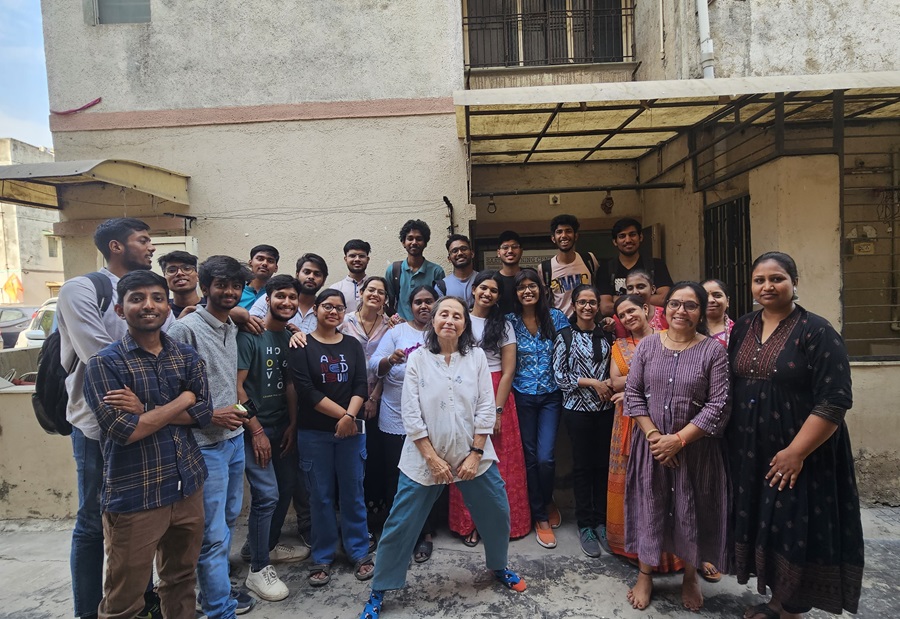STORY CREDITS
Writer: Saumya Mishra
Photo: IITGN Photos
When we think of engineering students, we picture students mostly working in lab settings, conducting experiments, or creating prototypes. Rarely do we imagine these students going out in the field and having in-depth conversations with the target population for whom they create solutions. In order to bridge this gap and to offer a human-centred perspective to students, IIT Gandhinagar (IITGN) offers a unique course titled ‘Sustainable Design in Engineering with Human Factors’.
This course, taught by Prof Anezka Sebek, was opted by Btech as well as Masters students at IIT Gandhinagar. Some of the core components of this course involve field work, empathy, and iterative prototyping. The hands-on programme allows the students to immerse themselves in the context of the problems they aim to solve.
One of the most impactful aspects of the course is that it exposes students to real-world environments that may be unfamiliar to them. For instance, as part of this course, the students focused on designing smart solutions for the target field site women entrepreneurs from less fortunate neighbourhoods of Ahmedabad. These women, called ‘nutripreneurs’, run a business by making nutritious snacks for their families and neighbourhood, thus focussing on community health. At its core, the course aligns itself with the United Nations Sustainable Development Goals (SDGs), using food as a central theme to address broader sustainability challenges.
The students focus on the field site exploration of the Design Thinking process and empathy lies at the core of this process. They begin by empathising with and deeply understanding the issues faced by these women in their businesses. Throughout the course, the students learnt to take interviews and create empathy maps and system dynamics maps to fully understand the economic and cultural forces that influenced the lives of the nutripreneurs.
After a preliminary research and developing a thorough understanding of their users, the students ideate in the classroom with storytelling and brainstorming sessions, rough prototyping and underscoring human factors, subsequently followed by field site testing. They then present their solutions and test them with the nutripreneurs. Based on their feedback, the students continuously refined their prototypes several times to arrive at progressively better solutions.
Through this exercise, they learnt how to address real-world challenges by involving the very people who will use their products, making their solutions more relevant, usable, and sustainable.
Moreover, the students are also tasked with reflecting on their experiences through blogs, essays, and presentations, which encourages deeper analytical thinking and helps them synthesise their observations into actionable insights.
One of the course’s most significant outcomes is the development of digital products designed to monitor the efficacy of nutripreneurs’ snacks and track their profits. These tools, created by the students, are not just theoretical exercises but are currently being refined and tested by the participating NGOs and nutripreneurs, with the potential for real-world application.

